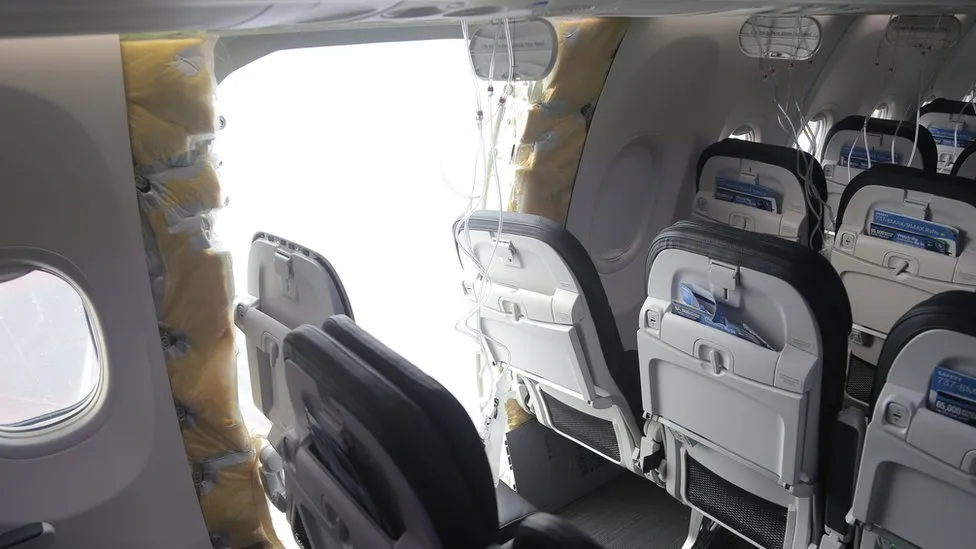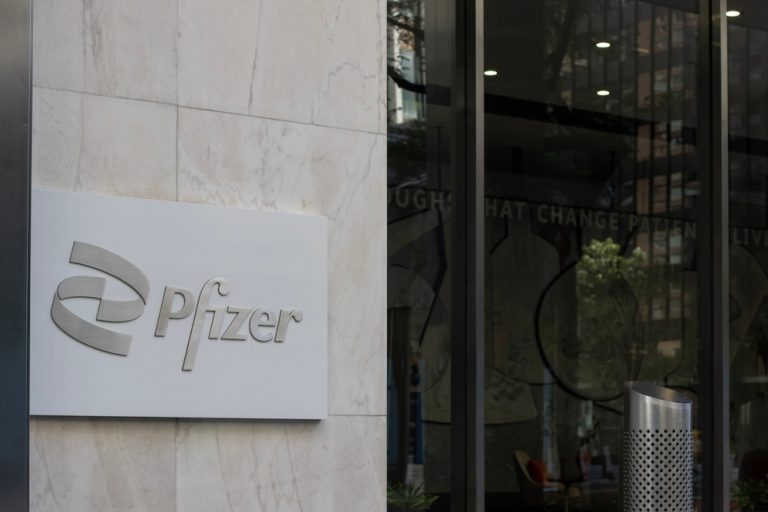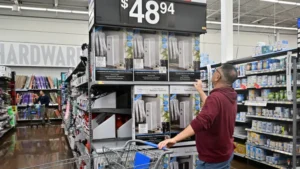The aviation world faces a new challenge as US regulators take a firm stand on aircraft safety. Following a startling incident involving a Boeing 737 Max 9 plane, the US government, led by Transportation Secretary Pete Buttigieg, has declared that these aircraft will remain grounded until proven safe. This decision comes after an alarming mid-air blowout on an Alaska Airlines flight, raising severe concerns over Boeing’s quality controls.
In a decisive statement, Transportation Secretary Pete Buttigieg emphasized the need for complete safety assurance, stating, “The aircraft… need to be 100% safe.” This stance reflects the government’s unwavering commitment to passenger safety, unwilling to compromise or be hurried in re-clearance.
Boeing’s CEO, Dave Calhoun, candidly referred to the incident as a “quality escape,” indicating a lapse in quality control for a plane that had only been in service for eight weeks. His remarks to CNBC further highlighted the need for a thorough investigation: “What broke down in our gauntlet of inspections? What broke down in the original work allowed for that escape.”
Earlier, Calhoun had acknowledged Boeing’s responsibility following detaining a fuselage section from the 737 Max 9 plane. Fortunately, this incident resulted in no injuries, leading to the US Federal Aviation Administration (FAA) grounding 171 Boeing jets equipped with the same door plug – a crucial part of the aircraft’s structure.
The response from airlines has been immediate and significant. Alaska Airlines cancelled approximately 20% of its flights after grounding 65 Max 9 planes. United Airlines, another operator of the 737 MAX 9, reported 79 grounded planes, anticipating considerable cancellations. Both airlines discovered loose parts on several grounded aircraft, with United finding bolts needing “additional tightening.”
Jennifer Homendy, Chair of the National Transportation Safety Board, raised the possibility that the missing bolts might have been a pre-existing issue, potentially overlooked during initial inspections.
The grounding of the Boeing 737 Max 9 jets represents a critical juncture in aviation safety. As airlines and Boeing work closely with the FAA to resolve these issues, the emphasis remains on ensuring that every aircraft meets the highest safety standards. The path to resuming flights for these planes is clear: safety must be guaranteed, with no room for shortcuts or haste. This situation is a stark reminder of the importance of rigorous quality control and the need for constant vigilance in the aviation industry.























+ There are no comments
Add yours